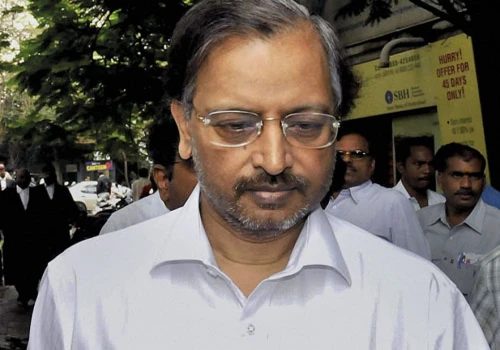
Religare Enterprises, a financial services company in India, is embroiled in a controversy surrounding stock options granted to its executive chairperson, Rashmi Saluja. The Insurance Regulatory and Development Authority of India (IRDAI) is currently investigating the matter, casting a shadow over Religare's corporate governance practices.
The controversy stems from Saluja's position as non-executive chairperson of Care Health Insurance, a subsidiary of Religare. In December 2021, Care Health reportedly sought approval from IRDAI to grant Employee Stock Ownership Plans (ESOPs) to Saluja. However, IRDAI rejected the request. Despite this, Care Health went ahead and allotted stock options worth a significant Rs 250 crore to Saluja in May 2024.
This irregularity came to light through a Right to Information (RTI) query filed by Rahul Kanoj. The news sent shockwaves through the financial sector, raising concerns about potential breaches of regulatory guidelines. Proxy advisory firm InGovern further fueled the fire by highlighting discrepancies in the pricing of the stock options. They pointed out that the exercise price for Saluja's options was lower than the price at which Care Health issued rights to its existing shareholders in the same year.
The controversy has also reignited a long-standing conflict between Religare's management and the Burman family, the company's largest shareholder. The Burmans have accused Saluja of illegally receiving the stock options and have also raised allegations of insider trading against her. Earlier this month, they filed renewed complaints with the Securities and Exchange Board of India (SEBI) to investigate these claims.
In a recent interview, Saluja addressed the ongoing investigation and the accusations. She expressed her commitment to upholding Religare's governance standards and ensuring positive market performance. "We stand committed to ensure that with full governance and full strength," she stated. Saluja emphasized the company's resilience and adherence to regulations despite the challenging situation.
However, her comments haven't quelled the concerns. The Burman family's accusations and the ongoing IRDAI probe paint a picture of a company potentially struggling with internal controls and transparency. To make matters worse, Religare's independent directors have also thrown their hat into the ring, accusing the Burmans of fraud and other breaches. This multi-pronged conflict within the leadership further complicates the situation.
Saluja has expressed openness to discussions that could benefit Religare's future. She emphasized her commitment to working in the best interests of the company, its shareholders, and its employees. Whether these discussions can resolve the current issues and restore investor confidence in Religare remains to be seen.
The IRDAI investigation is ongoing, and its findings will be crucial in determining the extent of any wrongdoing and the potential consequences for Religare and its leadership. This case serves as a stark reminder of the importance of robust corporate governance and adherence to regulatory guidelines in the financial services sector. Only time will tell how Religare will navigate this controversy and rebuild trust with its stakeholders.












